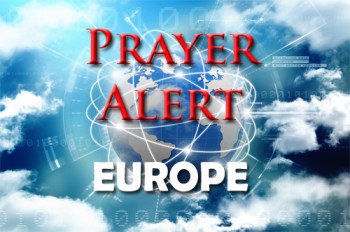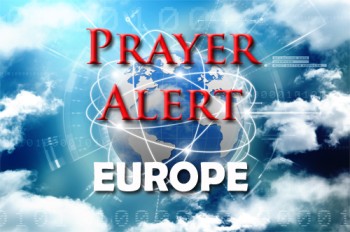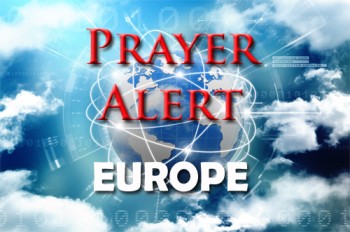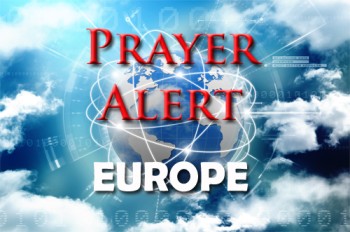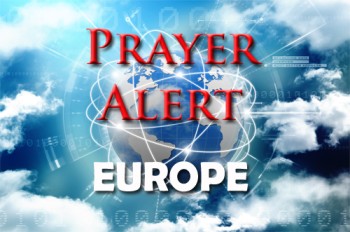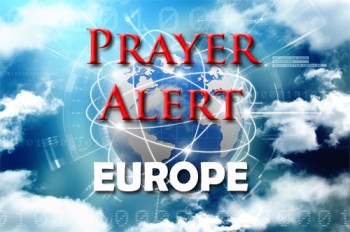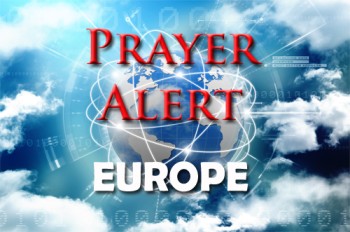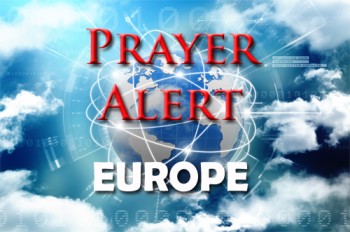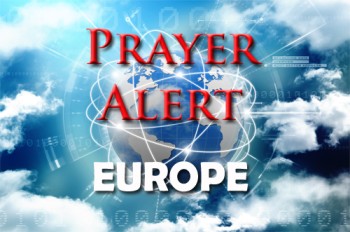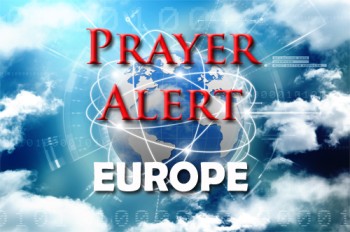Displaying items by tag: Europe
Ukraine stops transporting gas to Europe
Ukraine has decided to stop transporting Russian gas to Europe after a deal with Moscow expired, marking a historic and symbolic shift in policy. As a result, both countries will incur financial losses: Ukraine will forfeit $800 million annually in transit fees, while Russia’s Gazprom will lose nearly $5 billion in sales. Europe, which has reduced its dependence on Russian gas from over 40% in 2021 to about 8% in 2023, will now receive Russian gas solely via the Turkstream pipeline. To compensate, the EU has increased imports of liquefied natural gas from the USA and pipeline gas from Norway. While analysts say Europe is unlikely to face energy shortages, refilling reserves may prove challenging, potentially driving up gas prices. Some regions have already reduced heating supplies, highlighting the ripple effects of the expired transit deal. Meanwhile, Russia and Ukraine have concluded one of their largest prisoner exchanges since the war began: see
Russia: senior general assassinated
On 17 December Lieutenant-general Igor Kirillov and his assistant were killed in Moscow by a Ukrainian agent in a targeted assassination, intensifying a new front in the conflict. Kirillov, the head of Russia’s nuclear, chemical, and biological defence forces, died in an explosion outside his home caused by a remotely detonated bomb hidden in a scooter. The Ukrainian security service claimed that Kirillov was ‘a legitimate target’ due to his alleged war crimes, including the use of banned chemical weapons on Ukrainian troops. Since February 2022, Russia is said to have used chemical weapons over 4,800 times under his leadership. This marks a continuing trend of Ukraine’s covert operations to assassinate high-ranking Russian officials and disrupt their military efforts. While Ukrainian intelligence rarely takes credit for such actions, these killings are seen as a psychological tool to weaken Russia's morale and send a message about the cost of war crimes.
France: fifty men found guilty of mass rape in landmark case
In a landmark case in Avignon, 72-year-old Dominique Pelicot and fifty co-defendants have been found guilty of mass rape against his wife Gisele over a decade. Dominique, who admitted to drugging and allowing strangers to abuse his wife while filming the assaults, was sentenced to twenty years in prison, with no parole until two-thirds of the sentence is served. Other defendants received sentences ranging from four to eighteen years. Gisele, who waived her anonymity, demanded the horrifying footage be shown in court, stating, ‘I’ve done nothing wrong. They are the ones who must be ashamed.’ Her courage has made her a feminist icon in France, inspiring other survivors to speak out. Supporters cheered as guilty verdicts were announced. The trial, which saw Gisele face her abusers in court, has shaken the nation. Her children stood by her during the proceedings, underscoring the profound impact of her resilience on justice and awareness.
Germany: early election after no-confidence vote
The chancellor, Olaf Scholz, has lost a vote of no confidence in the German parliament, resulting in an early election which will take place on 23 February. Although he expected the loss, Scholz saw this as an opportunity to rejuvenate his party’s fortunes; after the collapse of his three-party coalition government in November, his minority administration has struggled to pass legislation. His Social Democratic Party (SDP) is lagging in the polls, while the conservative Christian Democratic Union (CDU) seems poised to return to power. Following the vote, the president has 21 days to dissolve parliament. This early election campaign will focus on key issues such as the economy, immigration, and taxes. The rise of radical parties, like the hard-right Alternative for Germany (AfD) which is currently polling at almost 20%, adds complexity to coalition-building efforts, as the mainstream parties struggle to form a stable government.
Ukraine: Russia could launch hypersonic missile ‘within days’
US intelligence suggests Russia may launch its experimental Oreshnik hypersonic missile against Ukraine within days. First used in an attack on Dnipro in November, the missile displayed astonishing speed and precision, striking a military facility with devastating fireballs. Despite its limited number and smaller warhead compared to other missiles, its deployment is seen as an intimidation tactic rather than a battlefield game-changer. Vladimir Putin boasted about its capabilities on national television, warning NATO allies that supporting Ukraine with longer-range weapons could provoke similar strikes on their territories. This statement followed Putin's signing of a revised nuclear doctrine lowering the threshold for nuclear weapon use, allowing for retaliation even against conventional attacks supported by nuclear powers. Meanwhile, tensions rise as the USA loosens restrictions on Ukraine’s use of long-range weapons to counter Russian aggression.
France: author guilty of downplaying Rwandan genocide
French-Cameroonian author Charles Onana has been found guilty of downplaying the Rwandan genocide, which resulted in the deaths of approximately 800,000 people in 1994. He was fined €8,400, and his publisher was fined €5,000. The two must also pay €11,000 in compensation to human rights organisations which filed the lawsuit. A Paris court ruled that Onana’s book, published in 2019, trivialised and contested the genocide in an ‘outrageous manner’, violating France's laws against genocide denial and incitement to hatred. The book suggested that the narrative of a planned genocide by the Hutu government was a ‘scam’, a claim criticised for distorting historical facts. Rwanda's foreign minister has welcomed the court’s decision as a victory. This is the first time in Europe that those denying the genocide have been punished under French law.
France: government collapses in no-confidence vote
Prime minister Michel Barnier has been ousted in a historic no-confidence vote, leading to the collapse of his government. The motion follows his controversial use of special powers to pass a budget without parliamentary approval. The budget, which aimed to reduce the deficit by €60 billion, faced criticism from both the left-wing New Popular Front (NFP) and far-right National Rally (RN); Marine Le Pen, RN leader, called it ‘toxic for the French’. This has plunged France into deeper political instability; no new parliamentary elections can be held until July, so the current deadlock in the Assembly - where no group has a working majority - is set to continue. Barnier, appointed by Emmanuel Macron just three months ago, has presented his government’s resignation, but will continue for now in a caretaker capacity. Macron’s presidency remains intact, but pressure on him is mounting.
France: Notre Dame reopens after restoration
Notre Dame Cathedral is set to reopen on 7 December, after a five-year restoration following the devastating 2019 fire. Ceremonies will blend tradition and modernity, including a symbolic door-striking ritual led by Archbishop Laurent Ulrich and a solemn Mass on the Feast of the Immaculate Conception. (8 December). The restored cathedral features a mix of Gothic preservation and contemporary updates, such as a new altar and reliquary, sparking debate but garnering widespread admiration. Restoration efforts exceeded funding goals, totaling €700 million, and Paris anticipates a renewed influx of visitors. Somewhat surprisingly, Donald Trump’ will be there, joining nearly fifty world leaders: security will be tight, with 6,000 personnel deployed. Conspicuously absent, however, is Pope Francis, whose refusal to attend has fuelled speculation about the Vatican’s priorities. As Notre Dame prepares to welcome the faithful once again, its reopening symbolises resilience and the enduring significance of sacred spaces.
France: Pelicot rape trial reaches its conclusion
The landmark trial in Avignon, involving the systematic drugging and rape of Gisèle Pelicot by 49 men orchestrated by her ex-husband Dominique Pelicot, has gripped the nation. The prosecution has sought a twenty-year sentence for Pelicot, who admitted to facilitating the assaults over nearly a decade, and 10-18 years for most co-defendants. The case has sparked national debates on consent, male violence, and systemic legal shortcomings. Prosecutors have highlighted Pelicot’s bravery in waiving her anonymity and allowing graphic evidence to be shown, confronting societal shame surrounding sexual violence. Feminist activists have rallied in support, condemning the accused and demanding justice. Defence lawyers, however, argue that many defendants were misled by Pelicot’s claims of his wife's consent. The trial has renewed calls for legal reforms, and Michel Barnier’s government has pledged new measures to combat violence against women. One commentator said: ‘This trial has affected every one of us. What have we done wrong as a society to produce men who are capable of such inhumane behaviour?’
Ukraine: massive Russian attack on energy infrastructure
On 27 November Russia launched a massive, coordinated strike on Ukraine’s energy infrastructure, hitting cities nationwide with waves of drones and missiles. This marks the second large-scale attack on Ukraine’s energy facilities this month, compounding fears of a harsh winter ahead. Emergency power cuts were introduced as damage to civilian infrastructure was reported in many regions, leaving over a million people without power. Ukrainian officials warned of preemptive power cuts to protect the grid from overloads as temperatures continue to drop. The attacks are part of a broader strategy, with over 1,500 strikes reported this week. Ukrainian officials fear Russia aims to cripple the country’s power grid, a tactic used in previous winters. Russia has also deployed a new type of missile to strike the city of Dnipro, in response to Ukraine launching UK-supplied missiles into Russian territory. For an analysis of the recent developments in the war, see
